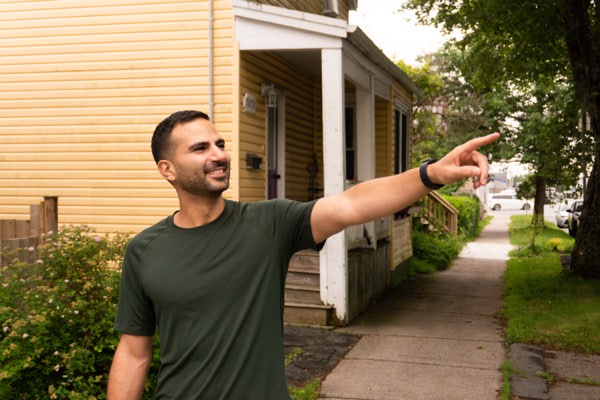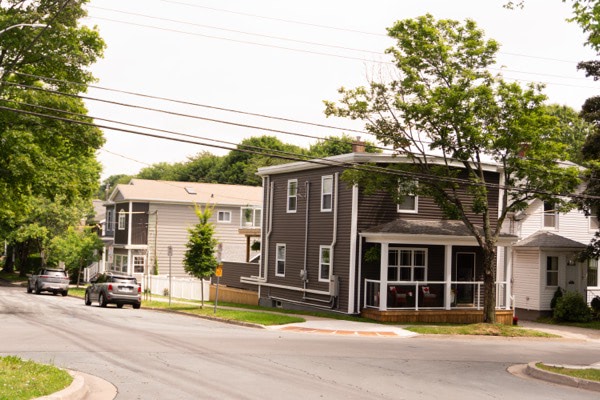Is your mortgage still the perfect fit? Here are some tips to help home owners determine this answer and their next steps.

Do you have realistic buying and selling goals?
The housing market over the last year and a half has been a bit intense, to say the least. Prices have skyrocketed, and supply and demand have been a rollercoaster ride of their own. As we approach the last quarter of 2021, you might be wondering if it’s a good time to buy or sell. The answer is yes, but only if you have smart buying and selling goals.
Entering the housing market today will look a bit different than previous years, but the need for realistic buying and selling goals is the same. Organization is key, whether you plan to be a buyer or a seller. Here’s what you need to think about before you jump in!
For buyers
Down payment
As a buyer, one of your goals will be saving up for the down payment for your future home. You will need a down payment of at least five per cent, but buyers often try to save 20 per cent to decrease their monthly mortgage payments. You need to decide on a payment plan that meets your needs. Do you want to save up a full 20 per cent? If so, make sure this is a realistic goal, and that the home you plan to buy is within your budget. If you know you have more limited funds and a smaller budget, you may opt for a five per cent down payment and simply make bigger mortgage payments for the duration of the loan term. It’s essential that you understand your own financial situation and what you are capable of saving for a down payment. You also need to consider whether you will need mortgage insurance and if you can handle higher monthly mortgage payments.
When do you plan to move?
Your timeline is another key factor you will need to plan around. If your buying goal is to own a new home and be moved in within three or four months, for example, you should already have your pre-approval, an agent, and a budget. Be realistic with your timeline. Don’t aim to move next month if you just decided to buy a new home today. By the same token, don’t get a pre-approval and then do nothing. Start house hunting as soon as you can, and work out whether there are factors that will impact your timeline, such as work, school, or family. Everyone’s buying and selling goals will vary, but a realistic timeline is essential for all.
How much debt do you have?
It’s not impossible to buy a home with debt, but your buying goals might vary depending on your debt levels. For example, maybe you have credit card debt or car payments, but you always make your payments on time with no struggle. In this case, lenders are less likely to worry about your debt when making a decision to approve you for a loan. On the other hand, if you’re truly struggling with debt, lenders might not want to pile on more debt for fear you can’t handle it.
Generally, less debt is better. However, proving that you have a handle on your debt, and your income doesn’t mainly go towards your debt, can show a lender you are trustworthy. Your home buying goals in relation to your debt should focus on whether your debt will get in the way of buying a home, and whether it will cause you to have higher interest rates.
For sellers
What is a realistic asking price?
Although we are in a seller’s market, it is important to price your home accurately to give yourself the best sale. Buyers are in a better position to negotiate today than they were earlier in the pandemic, as demand has dropped off a bit and supply has risen. If you price your home too high, you might not get any bites. If you price too low hoping for a bidding war, you also risk only getting offers far below what you expected. Your goals should include hiring a professional to help you decide your home’s value, and what an appropriate asking price is in this market.
How much money will selling cost?
Some buying and selling goals overlap, and proper money management is one of them. Selling your home might earn you money, but keep in mind the money you will need to spend as well. You should be realistic about how much money you hope to make from the sale of your home. Once things such as staging and closing costs are taken care of, not to mention any renovations or home improvements you might do before listing, you will be left with less money than the actual home sale. Be realistic about what you expect to gain!
What’s next?
Once you sell your home, what’s your next move? Everyone who sells needs to find another home somewhere, so if you plan to buy a new home, you need to be ready for that process as well. Be realistic about where you can afford to relocate based on the selling price of your current home. Remember that buying and selling are pricey endeavours, and any money you make from the sale will at least be partly devoted to finding a new home.
Your buying and selling goals will vary depending on your individual circumstances. However, these are all important factors to consider during the process. Buying and selling might not be easy, but understanding your goals will help you have the best experience possible in the housing market.
If you have any questions, get in touch with us at Clinton Wilkins Mortgage Team! You can call us at (902) 482-2770 or contact us here.


